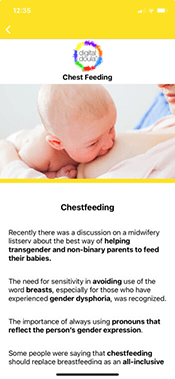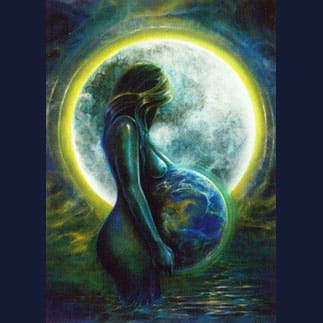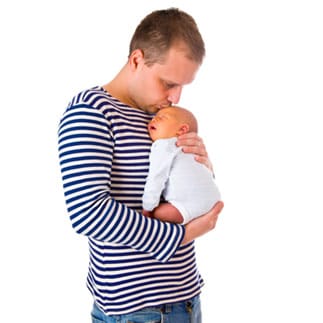American Mother’s Day is coming up, and while reflecting on motherhood I considered a recent development in the ecosphere regarding all-inclusive language. There are those who are advocating for more diversified terms regarding people who have babies, and there are those who are adamant that this language has the unintended consequence of erasing words like ‘mother’ and ‘woman’. I’m not just talking about right-wing politicians who want to take the world backwards and object to all things LGBTQ+.
Here in the UK, where I live, there is an outspoken author and positive birth advocate who has been campaigning to bring awareness to just how pervasive this erasure has become – in advertisements, government reports, charities, and various other written forms. I received notifications when she published her Substack editions, but after a while it started to feel redundant, and I unsubscribed.
I feel ambivalent on the subject, although I have been working for over 45 years in support of mothers and mothering. In 2011, I wrote a report after conducting research on the social support needs of the LGBT community, called “Toolkit for LGBT Social Support Needs in the UK.” It was part of a funded intergenerational research study that was incorporated into the final report: Celebrating Intergenerational Diversity Among LGBT People, by the International Longevity Centre – UK.
My ambivalence rests on the fact that I can see both sides of the situation and have delved deeply into both mothering and the needs of the LGBTQ+ community. It goes beyond the use of pronouns to describe one’s gender. I’m happy to communicate in ways that are inclusive and respectful of the dignity of gender nonconforming people. However, I feel the need to protect the meaning and substance of what being a mother is, and what happens to a woman when she gives birth.
One of my earliest publications was called “Becoming a Mother” which was published in 2001 in the Journal of the Association for Research on Mothering (JARM), which is now the updated Journal of the Motherhood Initiative for Research and Community Involvement. Here’s a link to the article: https://dianespeier.com/wp-content/uploads/Becoming-a-Mother-jarm_speier.pdf.

Although I don’t claim to know the full experience of trans men who become pregnant and give birth, I have included in my postnatal app Digital Doula®2.0 a page on chestfeeding in the breastfeeding section. Here is another place where all-inclusive language has developed, and I support that (obviously). I’m not okay with the erasure of mothers as a class of people who give birth and become parents. From what I know, trans men prefer to be called father, not mother.
One of my longstanding concerns about new motherhood is how a mother can become almost invisible after her baby is born, when all eyes shift over to admiring the new baby. The work that mothers do is crucial for the upbringing of the generations, but is not valued in many English speaking countries. In the US, the availability of paid maternity leave is dependent on a woman’s employer, and sometimes the state that she lives in, but it is the only post-industrialized nation to not have a universal maternity/parental leave policy.
In the UK, there are policies that support maternity leave and parental leave, including for both parents. And there are programs for early education starting at age 3, to support mothers who are going back to work. Childcare in both cultures is a major issue for parents, which consumes huge amounts of household income. In some cases, when there is more than one child, it becomes more cost-effective to stop working.
And for those who are considering whether to become parents, childcare struggles remain one of the strongest reasons to opt out. There has been a notable decline in fertility rates across the world, which some countries find alarming for the perpetuation of their populations. Think of Russia’s retrogressive policies for women to stay home and have lots of babies (to replace the hundreds of thousands of soldiers who have been killed). There are many American politicians who would like to go back to women being ‘barefoot and in the kitchen’, which is now being reflected in state policies that are eviscerating the rights of women on many fronts.
On this Mother’s Day, let’s celebrate mothers and the nurturing they provide, the sacrifices they make, and remember that we are all ‘of woman born’, the title of Adrienne Rich’s feminist book on the institution of motherhood (1976), nearly 50 years old. That’s true whether that person is cisgender or transgender. Ultimately, it’s vital to remember that when we give birth to our babies, we give birth to ourselves as mothers.
For more than 45 years I’ve been dedicated to raising awareness of the challenges of new motherhood, and the ways we can support this transition. My new online course, 8 Keys for Thriving in the Fourth Trimester: Unlocking the Potential of the Postpartum Period, brings this wisdom to today’s generation of childbearing families, and it is being launched on June 6, 2024. For more information, and a free download, check out www.thrivinginthe4thtrimester.com. Feel free to share this with friends and family who are either pregnant or just had a baby. They’ll thank you for it.
Blessed be.







